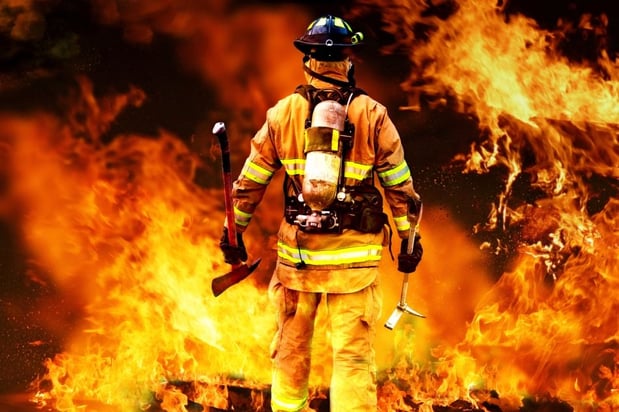Peek into the average day of a first responder and you’ll soon realize that there’s no such thing. Those in the emergency services see and experience more trauma than the regular civilian can even imagine. After rescuing people out of burning buildings, pulling children out from under crushed vehicles and being on the scene of bloody accidents, you have to wonder, where do society’s protectors go to protect themselves afterwards?
The answer, most of the time, is to the bar.
Don Prince, an ex-fire chief who served for 16 years in his department on the eastern end of Long Island, knows this very well as he too fell victim to this dangerous dichotomy in early 2009. He lost his job, his marriage and his self-esteem—all to the vicious hands of alcohol. The next thing he knew, he was barely coming out of his room, living like a hermit and barely showering in a period that he recalls as a “very dark, dark time in [his] life.” After realizing that he was literally drinking himself to death, he finally reached out for help—something that he was usually providing for others, not receiving.
Now, five and a half years sober, he sees just how isolating it is for someone like him to be on the opposite end of a crisis. He says that for firefighters and police officers, there is an expectation of “you can’t be weak” or “you can’t admit that you have a weakness.” Simply put, he says, “There’s such a stigma about us asking for help.”
However, after the suicide of Tim Casey, a friend and fellow firefighter who also struggled with alcoholism, Prince decided enough was enough. He picked up the phone and called Cali Estes, a well-known addiction recovery coach in South Florida, and told her he wanted to make a difference. “I said, ‘Cali, I can’t do this anymore. I want to call people one-on-one. I want to be that guy to go to. I want to be an interventionist.’” Three days later, he was enrolled in an Advanced Clinical Intervention class at The Addictions Academy, an addiction educational institution founded by Estes herself.
Today, Prince is a certified interventionist and sober coach at Warrior’s Heart, a co-ed treatment center exclusive to veterans, military, first responders, police and other law enforcement agencies. He finds it crucial that there is specific treatment tailored to this demographic and peer-to-peer support in a characteristically lone wolf profession.
“If you’re a cop, fireman, veteran, you got to be able to talk about your experiences in an environment where you feel safe,” he explains. “You can’t get a paramedic or firefighter who needs to get off his chest a car accident where a child was decapitated to communicate that with a bunch of people who don’t have that connection. We need to be amongst ourselves so we can talk to another person who understands.”
With more pressure and scrutiny placed on first responders than ever before, it’s hard to imagine what they can do to unpack their burdens with everything happening around them. Prince explains, “When you hang up your gear at the end of the day or you put your gun in your locker and you turn in your patrol card and you’re going home, your first idea is ‘I got to escape this; I got to calm down; I’m going to go have a drink.’ He further states that this desperate relief can cause some public service individuals to go so far as to plan their work schedules just so they can get drunk in between.
Though he’s no longer doing so with firehose in hand, Prince is still in the business of putting out fires. And as the addiction crisis spreads throughout our nation, it’s crucial that we all act quickly. Even if it feels like a one-man rescue at times, Prince is fighting to keep people like himself alive and well. “If I can save one person or if I can prevent another Tim from happening,” he says, “then I’ve done something in my life.”








